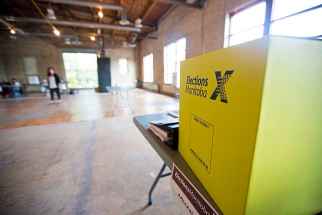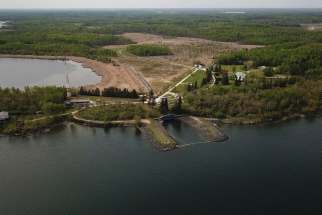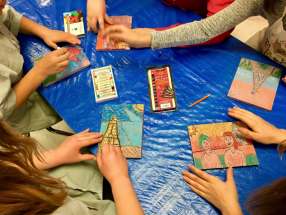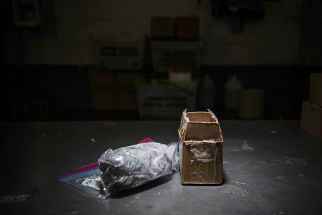What if you vote, but your voice doesn’t matter?
Read this article for free:
or
Already have an account? Log in here »
To continue reading, please subscribe:
Monthly Digital Subscription
$0 for the first 4 weeks*
- Enjoy unlimited reading on winnipegfreepress.com
- Read the E-Edition, our digital replica newspaper
- Access News Break, our award-winning app
- Play interactive puzzles
*No charge for 4 weeks then price increases to the regular rate of $19.00 plus GST every four weeks. Offer available to new and qualified returning subscribers only. Cancel any time.
Monthly Digital Subscription
$4.75/week*
- Enjoy unlimited reading on winnipegfreepress.com
- Read the E-Edition, our digital replica newspaper
- Access News Break, our award-winning app
- Play interactive puzzles
*Billed as $19 plus GST every four weeks. Cancel any time.
To continue reading, please subscribe:
Add Free Press access to your Brandon Sun subscription for only an additional
$1 for the first 4 weeks*
*Your next subscription payment will increase by $1.00 and you will be charged $16.99 plus GST for four weeks. After four weeks, your payment will increase to $23.99 plus GST every four weeks.
Read unlimited articles for free today:
or
Already have an account? Log in here »
Hey there, time traveller!
This article was published 06/09/2019 (2290 days ago), so information in it may no longer be current.
In the weeks leading up to the provincial election, the Southern Chiefs’ Organization has been holding “Unity Dances” throughout Manitoba.
The public events are “in response to oppressive policies from the Pallister provincial government,” which “has been exercising unlawful jurisdiction in First Nation territory on a variety of issues, from tobacco to cannabis, to cuts in health care, child and family services, and land procurement.”
This isn’t some fringe group, SCO is the political organization representing 34 First Nations in southern Manitoba — around 60,000 voters.
SCO is actively encouraging Indigenous peoples to vote Sept. 10. As Grand Chief Jerry Daniels wrote on social media: “Vote in this provincial election like you’re voting for chief and council!”

Meanwhile, the Assembly of Manitoba Chiefs has endorsed a provincial party in an election for the first time in the organization’s history (the NDP) and is running the “I’m First Nations and I Vote” campaign.
In the North, Manitoba Keewatinowi Okimakanak is seeking to inform its First Nations citizens on the voting process. On its website, beside election information, is a photo of Grand Chief Garrison Settee urging: “Exercise your right to vote and make your voice heard. Your voice matters.”
The Manitoba Metis Federation is running a similar campaign, encouraging nearly 70,000 Métis to cast a ballot.
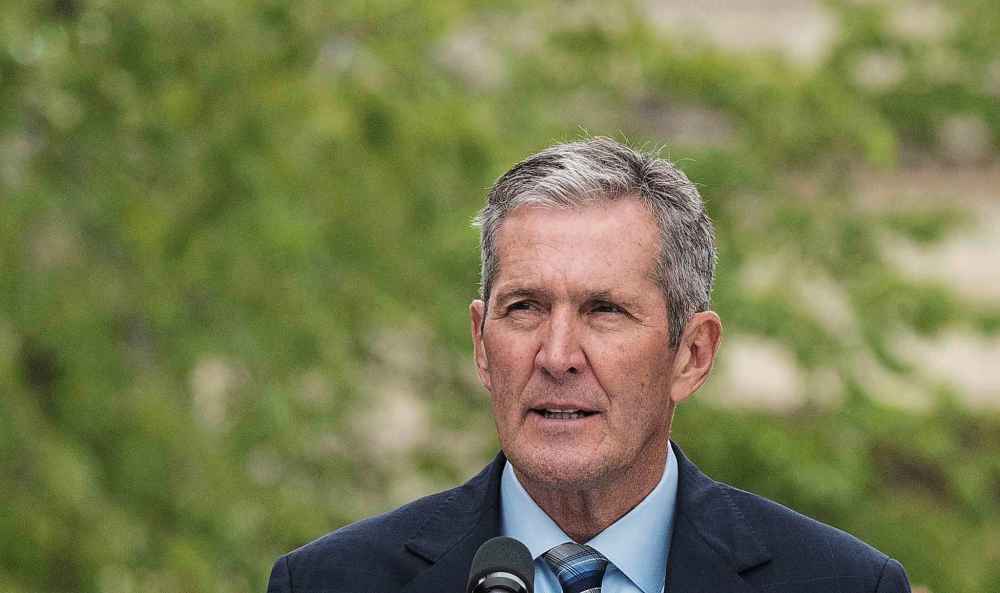
While the MMF hasn’t endorsed a party, it’s safe to say it’s not a fan of the Progressive Conservative party. For nearly three years, MMF president David Chartrand has been publicly fighting with Premier Brian Pallister, criticizing him as “vindictive” and “malicious” for cancelling legal agreements with the MMF and reneging on provincial promises.
Pallister has responded to criticisms on Indigenous issues by stating his government has achieved “genuine reconciliation.”
He also points to there being more Indigenous PC candidates than ever before (seven, or 12 per cent of their slate).
For the record, the Liberals have the same number of Indigenous candidates; the NDP has 10 (17 per cent); the Green party did not publish such data.
Leaders have spent time on job creation, infrastructure, climate change and endless hours on health care– all of which impact Indigenous peoples — but where is the appeal to Indigenous voters on issues that directly impact their lives?
At every turn, it appears, Indigenous peoples are told to vote.
If you want change: vote.
It you want more of the same: vote.
If you want to have your voice heard: vote.
In some ways this is true. In the 2016 provincial election, approximately 450,000 Manitobans cast a ballot. If every Indigenous voter had stepped up, that would be around 100,000 votes.

The problem, of course, is not everyone votes.
The other, lesser considered problem: what if you vote and your voice doesn’t matter?
Indigenous poverty, health, child welfare, the environment, and reconciliation have barely registered on the main parties’ platforms, statements, or promises in the 2019 campaign.
While each leader has touched upon these, only one (reconciliation) has been framed as an issue Indigenous voters would be interested in. Meanwhile, the most significant issue (poverty) has barely been addressed.
Leaders have spent time on job creation, infrastructure, climate change and endless hours on health care — all of which impact Indigenous peoples — but where is the appeal to Indigenous voters on issues that directly impact their lives?
The issue for Indigenous voters in this election is the same as most: vote and become complicit in a system that ignores and abuses you; don’t vote and signal your resistance but suffer from whatever decision is made by the people around you.
There have been a few highlights.

The Green party has the most aggressive platform in Manitoba, promising to “recognize Indigenous Nations as Nations,” implement the Truth and Reconciliation Commission of Canada’s “calls to action,” cap child-welfare caseloads, create restorative justice circles, and promote Indigenous language and culture.
None is costed, so perhaps this is more aspirational then tangible.
The NDP has promised the most to Indigenous voters, found primarily in its northern Manitoba strategy. Much involves reversing changes instituted by the PCs but there are some new commitments (a new health centre in Island Lake, a cabinet committee on missing and murdered Indigenous women).

The Liberal party has made commitments to provide cellphone and internet service for northern First Nations, support the creation of Indigenous businesses, and fix crumbling provincial roads and infrastructure near reserves. Leader Dougald Lamont has also notably promised not to “pick fights” with Indigenous leaders.
As for the PC party, the word “Indigenous” barely appears in its platform (read between the lines), but its plan is to encourage Indigenous economic development through land and resource use. That’s about it.
The issue for Indigenous voters in this election is the same as most: vote and become complicit in a system that ignores and abuses you; don’t vote and signal your resistance but suffer from whatever decision is made by the people around you.
Either way, Indigenous poverty gets worse, diabetes and suicide rates rise, record numbers of children are removed from their families, Lake Winnipeg gets sicker, exploitative resource projects are green-lit, and political leaders use “reconciliation” as a punchline.
Every poll and pundit predicts Pallister will be again Manitoba’s premier after Tuesday. If most of the Indigenous leaders in Manitoba are right, he will make things worse for their communities.
It’s enough to make one wonder why Indigenous people vote at all. Whether we do or not, very little changes.
niigaan.sinclair@freepress.mb.ca

Niigaan Sinclair is Anishinaabe and is a columnist at the Winnipeg Free Press.
Our newsroom depends on a growing audience of readers to power our journalism. If you are not a paid reader, please consider becoming a subscriber.
Our newsroom depends on its audience of readers to power our journalism. Thank you for your support.




